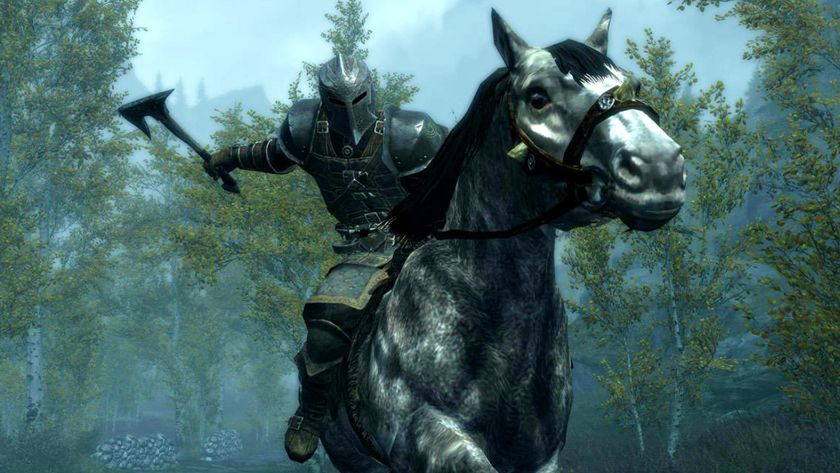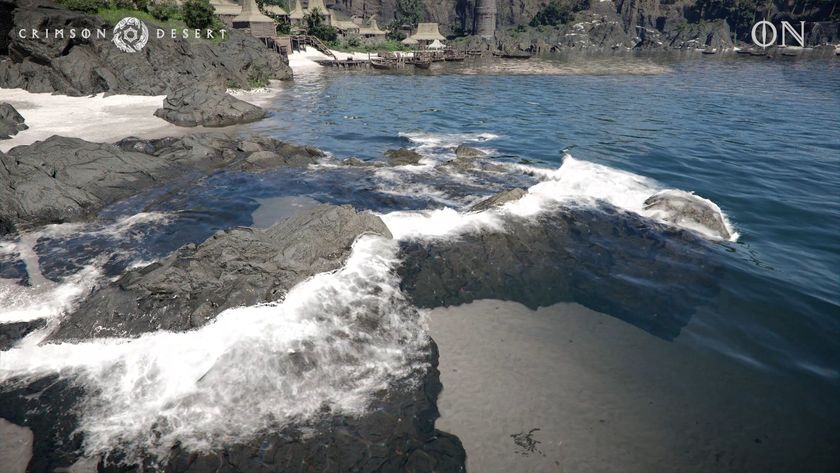All the major D&D class changes, explained
D&D classes are changing, perhaps for the better
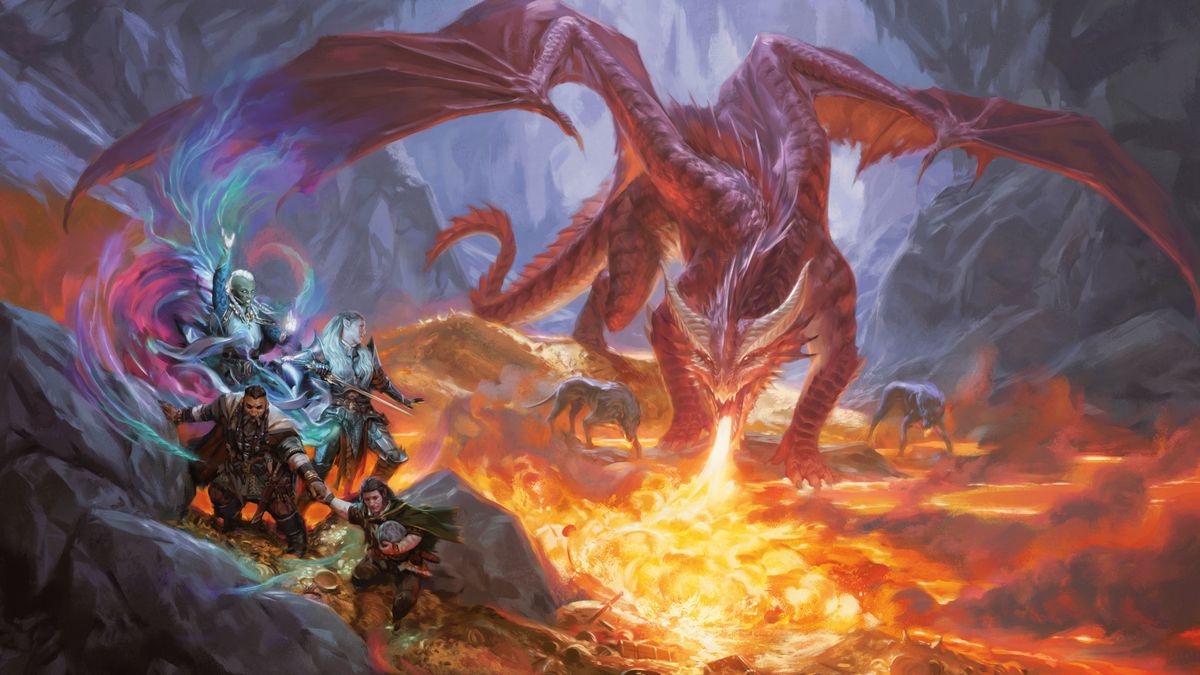
With a brand-new edition of D&D looming on the horizon, tweaked gameplay is being teased by developer Wizards of the Coast ahead of launch next year. The latest playtest showing off these updates takes a sledgehammer to certain classes, and they present some of the most significant changes the game's had in a while.
Because there's a lot to go through (the playtest presents 70+ pages of notes), we've broken down everything you need to know below. Whether it's a huge buff for the Monk - which will hit much harder in future Dungeons and Dragons books - or more classes getting the Weapon Mastery feature that provides an extra ability, there's a lot to dig into.
Sure, some of these changes may not make it to the 2024 version of D&D. This playtest is advertised as a work in progress, after all. But it's reasonable to assume that plenty of these updates will. As such, here's everything you need to know... including an easy-to-digest breakdown of what these new mechanics actually mean for fans of the best tabletop RPGs.
Oh, and as a quick side-note - the Fighter, Barbarian, Wizard, Warlock, and Sorcerer weren't included in this playtest, so you won't see them mentioned below. We'll likely hear about them again in later documents, so keep 'em peeled.
D&D class changes - Monk
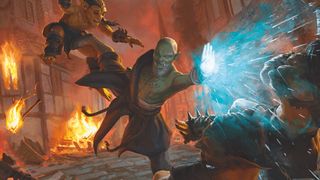
This class has been given one of the biggest upgrades of all; along with a clutch of new features, certain aspects like Martial Arts have been given a better die to roll so that Monks hit a lot harder than before.
Here are the headlines:
- The Martial Arts die now uses a d6 instead of a d4 to inflict more damage.
- 'Ki' points have transformed into 'Martial Discipline' to represent the self-control of these warriors. They can still be used to activate certain moves like 'Flurry of Blows' (which allows you to make two unarmed strikes as a Bonus Action), but 'Step of the Wind' now allows you to make both a Disengage and Dash action instead of having to choose one. It's a small tweak, but will have a significant impact on how maneuverable the Monk is.
- The 'Way of Four Elements' subclass (which was one of the least popular since the current edition of D&D landed in 2014) has been totally reworked and turned into 'Warrior of the Elements.' This enhances Unarmed Strikes with elemental power, and allows Monks to create a burst of elemental energy as an area-of-effect attack. If enemies within that area fail a Dexterity saving throw, they take "damage of the chosen type equal to three rolls of your Martial Arts die."
- 'Deflect Missile' has been altered as well, allowing players to hit much harder if they successfully thwart a ranged attack. Before, they could fling projectiles back for an attack using a monk weapon profile. In this version, whoever you hit "must succeed on a Dexterity saving throw or take damage equal to two rolls of your Martial Arts die." At 13th level, you can use this ability to deflect any kind of ranged attack, including spells.
D&D class changes - Druid

The Druid is probably the class that's seen the most change over the last few playtests, and a lot of feedback from the previous, controversial version has been taken on board (if you remember, not everyone loved that D&D's least-popular class was getting a boost to its best ability).
Sign up to the 12DOVE Newsletter
Weekly digests, tales from the communities you love, and more
Let's go over what's different:
- 'Wild Shape' has gone back to its old format where you choose a Beast form that has a maximum Challenge Rating of 1 / 4 (though you can't use something with a flying speed until eighth level). This is a big difference to the prior playtest version, where you used universal stat blocks for creatures of the land, sky, and sea. However, it's not just a rerun of what we've seen before. Now, Beast forms with a swimming speed are allowed from the start and Wild Shape has become a Bonus Action for all Druids. You can't be knocked out of your Wild Shape if you lose hit points equal to the Beast form stat block, either - instead, you'll stay in that shape until your Druid character drops to 0 HP or you decide to alter your appearance first.
- 'Primal Order' lets players emphasize armor or spell-casting at first level - the Warden or Magician, respectively.
- The Druid has to 'prepare', or choose, a number of Beast forms per day. This is to help both the player and the Dungeon Master know what the character can transform into at any given time, rather than the latter being forced to leaf through countless books to find the right (and obscure) stat block at the drop of a hat.
- Subclasses are more closely related to their theme - so Circle of the Moon Druids can use Radiant damage to represent moon beams, for example.
- There's a new subclass, called Circle of the Sea. Besides letting you breathe underwater from sixth level, it allows Druids to take on aspects of stormy oceans for the 'Wrath of the Sea' ability that strikes foes with Thunder damage along with pushing them away.
D&D class changes - Bard
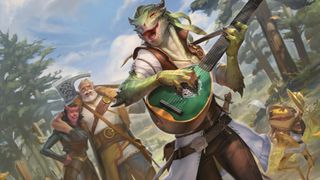
The iconic trickster musicians of D&D have been given some tasty updates as well. While most changes are updates to existing mechanics, some are brand-new - like the subclass that essentially lets battlefields become a flash mob. Here's a breakdown of all the changes:
- You can now choose the Arcane, Divine, or Primal spell list to represent your character's unique training. This lets you decide what kind of Bard you want to be: a classic trickster, someone able to influence nature, or a musician with ties to a religious institution. As an example, being a Primal Bard lets you lead various animals like the Pied Piper of Hamelin.
- The new 'College of Dance' has been added as a Bard subclass, and it helps players move allies (improving their initiative and getting them out of danger without provoking opportunity attacks, for instance) or force enemies to dance, thus conferring disadvantage on most rolls. It's hilarious and should cause plenty of chaos at the table.
- The 'Vicious Mockery' cantrip is now a Bard-exclusive, and provides 1d6 damage instead of 1d4.
- Bardic Inspiration has returned to the 2014 version, where it's used in response to a failed d20 check. Plus, "the healing option in the previous Bard playtest has been removed because, in playtesting, the healing option was encouraging too much usage hoarding, [resulting] in the Bard not using Bardic Inspiration at all."
- Countercharm (which lets you disrupt effects like Charmed or Frightened) has returned, and now can be used as a Reaction rather than an action.
- At 20th level, you always have 'Power Word Heal' and 'Power Word Kill' prepared and can use them on two targets rather than the usual one.
D&D class changes - Cleric
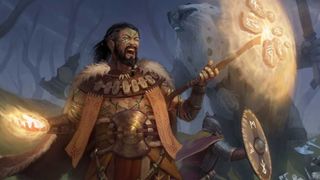
The Cleric class has mainly been fine-tuned based on previous playtests for new D&D (with some abilities swapping levels), but this version has introduced a couple of bigger changes too. If you've not kept up with other playtests, here's what's changed:
- Divine Order, a way of easily deciding what kind of Cleric you want to be, is available at first level. You can either be a 'Protector' with an emphasis on heavy armor and Martial Weapon proficiency, or a 'Thaumaturge' that's more of a warrior scholar. The latter has an extra cantrip and gets bonuses to Religion checks.
- Divine Intervention is now more reliable. Whereas it was a bit random as to whether you'd succeed before, now you can automatically cast a Divine spell of fifth level or lower as an action without prep or materials.
D&D class changes - Paladin
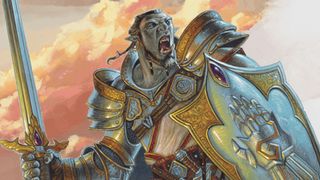
This holy warrior has come out pretty well across the last few D&D playtests, so it's another class with tweaks rather than massive changes. Want to see what we're dealing with? No problem:
- The 'Lay on Hands' healing ability is now a Bonus Action. That'll come in very handy, and means you can heal allies as well as attack in the same turn.
- You always have certain Smite spells prepared (with more becoming unlocked at each level), and can use one for free without expending a spell slot between Long Rests. Plus, most Smite spells are Paladin-exclusive.
- Weapon Mastery has been added from first level.
- Spells have changed slightly, with spell prep not being tied to your spell slot level anymore. In addition, cantrips have been removed in favor of Weapon Mastery, and you can now change one prepared spell after finishing a Long Rest.
D&D class changes - Ranger
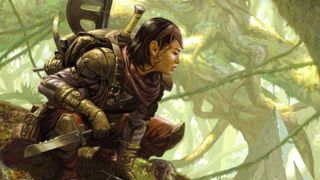
The Ranger is yet another class that's been popular in previous playtests, so the changes here aren't so massive. The major alterations are as follows:
- The 'Deft Explorer' ability allows you to choose one of your Proficiencies to have Expertise in from level one, along with providing advantage on certain checks for two types of terrain (like arctic, grassland, forest, etc). One of these terrain types can be swapped for another during Long Rests.
- The Beast Master element has been reworked with stat blocks being included right there in the subclass, and the Gloomstalker is being introduced as a standard subclass rather than being limited to a separate book as before.
- Rangers now have Weapon Mastery.
- The 'Conjure Barrage' spell is now a Ranger-exclusive spell with increased damage that allows you to strike multiple times and is always prepared from ninth level. Similarly, the 'Conjure Volley' spell is always prepared from level 17.
D&D class changes - Rogue

The Rogue is the final class to get revisions in this playtest, and from what we can see, the updates make it much more deadly on the battlefield. Take a look:
- 'Sneak Attack' doesn't need to use the Attack action anymore. Instead, it's simply used once per turn if you have Advantage or an ally adjacent to your target.That really powers up the Rogue in a big way.
- 'Cunning Strike' has been added, which allows you to trade Sneak Attack damage for a defined effect like disarming, tripping, or poisoning your opponent. You can also quickly withdraw without allowing for an Opportunity Attack from them.
- Rogues can have Weapon Mastery from first level.
- 'Steady Aim' from a previous book has been brought into the main class, offering Advantage on your next strike.
If this has you wanting to try out the game for the first time,, check out the best D&D class for beginners, and how to create your first D&D character. As for other tabletop recommendations, be sure to take a look at the best board games.

I've been writing about games in one form or another since 2012, and now manage 12DOVE's tabletop gaming and toy coverage. You'll find my grubby paws on everything from board game reviews to the latest Lego news.
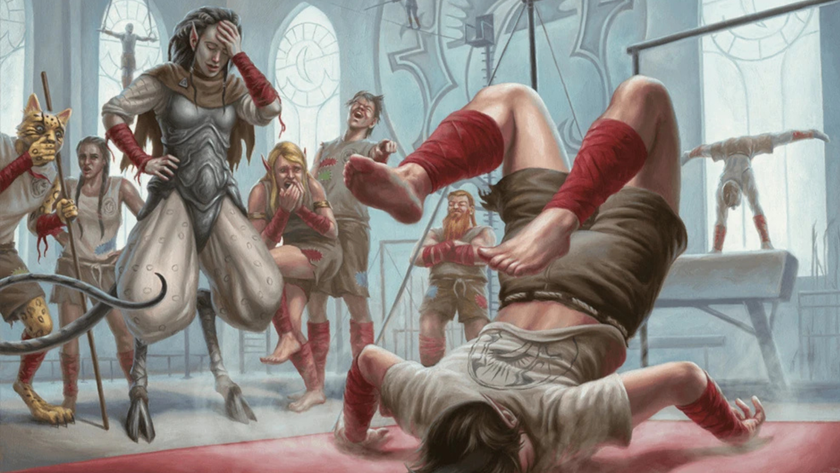
The Baldur's Gate 3-themed Stardew Valley mod that Larian boss Swen Vincke called "amazing" gets DMCA'd by D&D publisher Wizards of the Coast
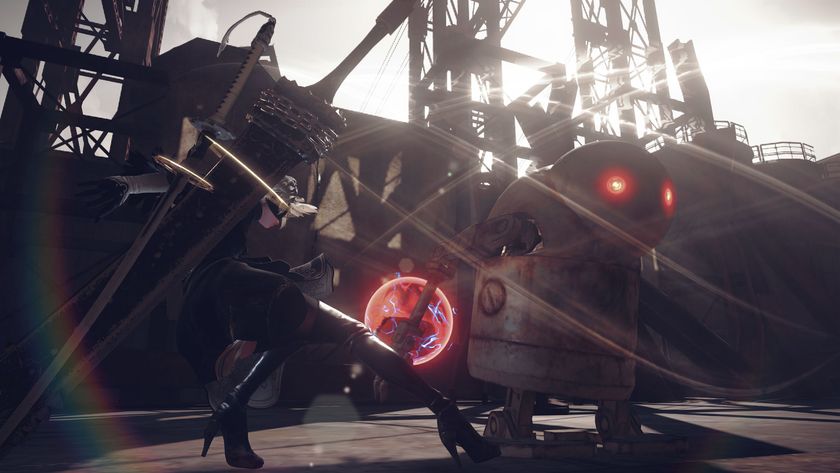
After PlayStation boss praises Nier Automata as a savior for Japanese games overseas, Yoko Taro says he was specifically told to focus on Japan because it wouldn't fly overseas
